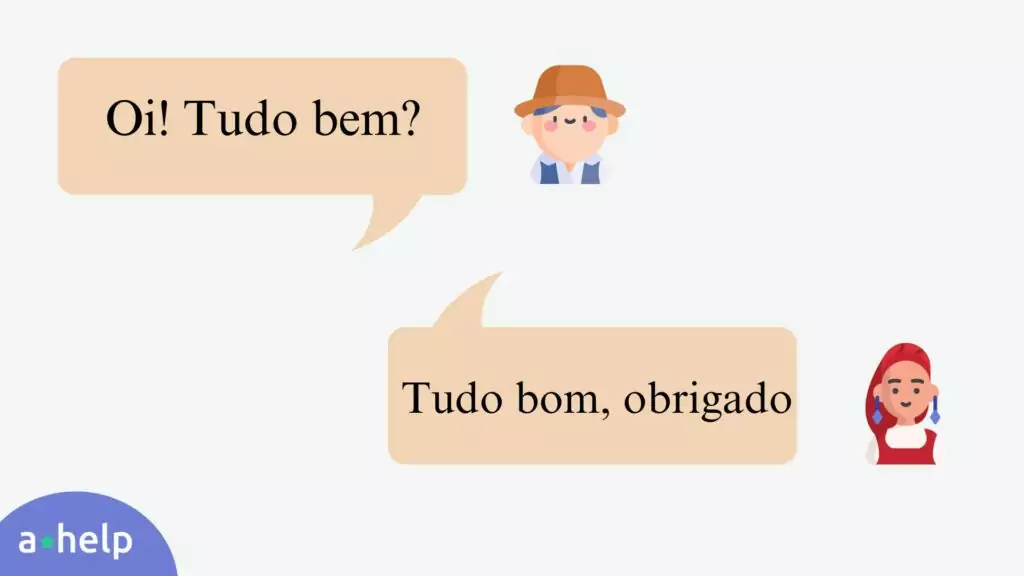In Brazil, greeting someone with “Tudo bem?” is a common practice. But what does it really mean? In this article, we will explore the meaning of “Tudo bem” in Portuguese and provide insights on how to greet your friends in Brazil. We’ll also discuss different ways to answer the “Tudo bem?” question. When translated literally, “Tudo bem?” means “Everything well?” So, let’s dive in and uncover the nuances of this popular Brazilian greeting.

✅ AI Essay Writer ✅ AI Detector ✅ Plagchecker ✅ Paraphraser
✅ Summarizer ✅ Citation Generator
Understanding the Meaning of Tudo Bem
The word “tudo” translates to “everything” or “all,” while “bem” translates to “well.” It’s important to note that “bem” is an adverb, while “bom” is an adjective meaning “good.” Although both can be used interchangeably in the greeting, they have distinct meanings in other contexts, which is not always stated by language learning sites.
Tudo Bem as a Brazilian Greeting
“Tudo bem?” is one of the most common ways to greet people in Brazil. Similar to the English phrase “How are you?” it can be used in both formal and informal settings, such as with friends and colleagues. Another variation you may come across is “Tudo bom?” which carries the same meaning. Remember, “bom” means “good,” while “bem” means “well.”
Responding to Tudo Bem
Common Responses
When someone greets you with “Tudo bem?” in Brazil, you have several ways to respond. The most common reply is simply “Tudo,” meaning “Everything.” Another option is to say “Tudo bem,” affirming that everything is indeed well.

For example, when you can answer “Tudo bem?” to an unwanted compliment by a stranger, who just learned how do you say beautiful in Portuguese.
Additional Responses
In addition to the common responses mentioned above, here are a few more ways to answer the “Tudo bem?” question:
- Tudo certo: This phrase translates to “Everything right” and implies that things are going well.
- Tudo ótimo: Use this response when everything is going great. It conveys a positive state.
- Tudo indo: If things are just average or so-so, you can say “Tudo indo,” which means “All is going.”
- Mais ou menos: When you’re feeling neither good nor bad, you can respond with “Mais ou menos,” which means “more or less” or “so-so.”
- E você?: To show interest in the other person’s well-being, you can ask “E você?” meaning “And you?”
Enhancing Your Portuguese Language Journey
Learning proper pronunciation is crucial for effectively communicating in Portuguese. To improve your pronunciation skills, consider focusing on the following tips:
- Master the sounds of the Portuguese language,including vowel and consonant sounds unique to Portuguese.
- Pay attention to stress patterns and intonation in words and sentences.
- Practice speaking Portuguese regularly to develop fluency and confidence.
In addition to “Tudo bem?” there are other popular Brazilian greetings worth exploring. One such greeting is “E aí?” which translates to “What’s up?” or “How’s it going?” Learning and using these greetings will make your Portuguese sound more natural and help you connect with native speakers on a deeper level.
Conclusion
Understanding the meaning of “Tudo bem?” and how to respond to it is essential for anyone interested in Brazilian culture and language. By familiarizing yourself with common Brazilian greetings and their nuances, you’ll be able to interact with confidence and establish meaningful connections with your Brazilian friends and colleagues. So, next time you’re in Brazil, don’t hesitate to greet someone with a warm “Tudo bem?” and embrace the vibrant culture of this beautiful country.
You can find more Language Learning Guides in our designated category here at A*Help!
FAQ
Follow us on Reddit for more insights and updates.





Comments (0)
Welcome to A*Help comments!
We’re all about debate and discussion at A*Help.
We value the diverse opinions of users, so you may find points of view that you don’t agree with. And that’s cool. However, there are certain things we’re not OK with: attempts to manipulate our data in any way, for example, or the posting of discriminative, offensive, hateful, or disparaging material.